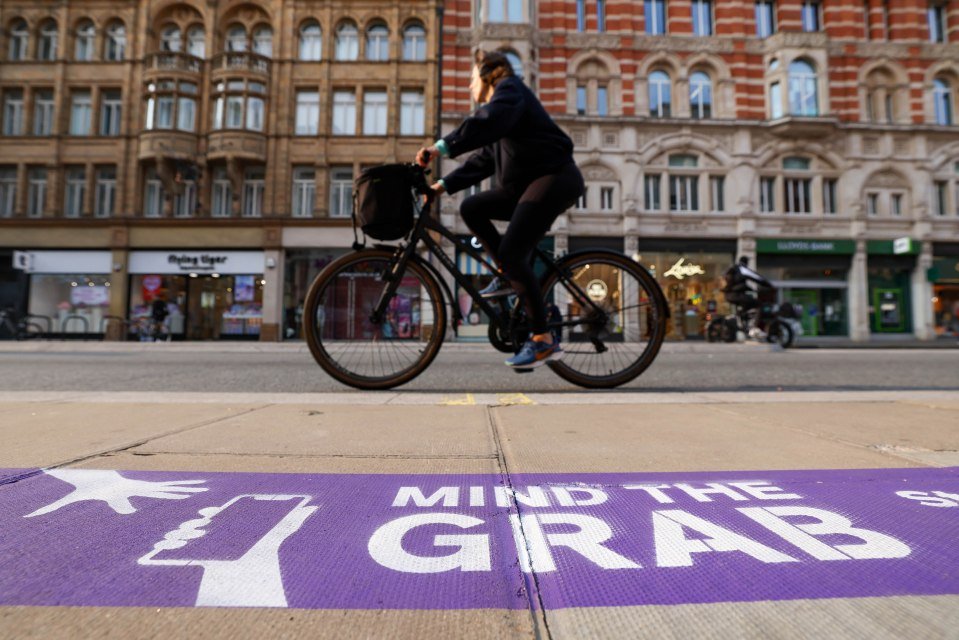Funding & Investment in Travel
Reinventing Creativity Or Redrawing The Lines Of Power?

Netflix’s recent experiments with Runway’s AI video generation technology marks more than just a tech upgrade — it signals a profound shift underway in Hollywood’s creative ecosystem.
The streaming giant, under the leadership of Ted Sarandos, has openly embraced AI to speed up and cheapen visual effects production, turning what once took weeks of painstaking labor into something achievable in days.
While this might seem like a straightforward efficiency gain, the implications ripple far beyond production schedules and budget sheets. The integration of AI tools is reshaping the very nature of storytelling, the economic lifelines of creative workers, and the power dynamics that govern the industry.
Where does the algorithm end and the artist begin?
Historically, Hollywood has always adapted to technological revolutions — sound, color, CGI — yet AI’s arrival is different. It’s not just a new tool. It’s an autonomous creative force capable of generating imagery, animating sequences and even proposing edits without direct human command.
This blurs the lines between artist and algorithm, prompting a reexamination of what constitutes creativity and craftsmanship. For visual effects artists and technicians — the backbone of blockbuster spectacle — AI threatens to hollow out entry-level and mid-tier positions. The painstaking frame-by-frame work that once provided a path into the industry risks being supplanted by automation. This could concentrate creative control in fewer hands, reducing the diversity of voices shaping our visual culture.
Potential for decentralization
But paradoxically, AI also has democratizing potential. Tools like Runway’s can empower smaller creators, independents and digital-native artists who lack big-studio budgets to produce effects-rich content. Suddenly, a one-person operation can conjure worlds once reserved for teams of hundreds.
This could decentralize Hollywood’s longstanding gatekeeping and nurture fresh storytelling. Yet the question remains: Will the industry embrace this decentralization, or will it instead harness AI to entrench existing hierarchies, commodify creativity and optimize content for algorithmic consumption?
The coming war over content creation
The stakes extend well beyond workers and artistry. For Netflix and other streaming behemoths, AI is a strategic lever in an increasingly cutthroat entertainment landscape. Meta’s Mark Zuckerberg eyeing Runway AI for acquisition underscores a looming tech war over who owns the future of content creation.
The ability to quickly generate and iterate special effects offers studios unprecedented control — lower costs, faster turnaround and the luxury of endlessly testing content for maximal viewer engagement. But this could tip storytelling toward formulaic, data-driven output, where creative risk is stifled by algorithms optimizing for clicks and watch time rather than daring ideas or cultural resonance.
What happens to Hollywood’s workforce as these changes unfold? While AI inevitably replaces certain manual tasks, it also creates new roles — AI supervisors, creative technologists, machine learning editors. The challenge is that these roles often require specialized skills and access to training, meaning the shift will not be seamless or equitable.
Mid-level artists without the resources to reskill may be left adrift. This labor disruption, layered atop an industry already marked by precarious freelance work and systemic inequality, could deepen divides between those who control AI tools and those displaced by them.
Creators rights and other thorny ethical questions
Beyond economics lies an ethical morass. As I have recently covered, AI-generated imagery complicates traditional notions of authorship and ownership. When machines remix and generate new visuals based on millions of prior works — often without consent or compensation for the original artists — what are the rights of creators? Legal frameworks struggle to keep pace, leaving many in limbo.
Audiences, too, may question the authenticity of content created or heavily manipulated by AI. The unique human spark in performance and artistry risks dilution when machines shoulder creative burdens.
Transparency and collaboration
Despite these tensions, the best path forward embraces collaboration between humans and machines. AI should be a co-creator, not a cold replacement. The industry must involve creative workers in how AI tools are developed and deployed, ensuring technology amplifies rather than erases human skill and expression. Labor unions and guilds must negotiate protections that reflect this new reality, guaranteeing fair pay for AI-assisted work and retraining programs that democratize access to new creative roles.
Transparency will be critical. Audiences increasingly demand to know how content is made — not just for ethical clarity but to preserve cultural trust. Imagine a future where productions disclose the degree of AI involvement, enabling viewers to appreciate the hybrid nature of modern storytelling. Such openness could inspire new appreciation for the artistry in directing AI, much as visual effects artists today are celebrated for their craft.
Netflix’s embrace of Runway’s AI signals not just a new chapter in production tech but a watershed moment for Hollywood’s creative and economic future — a moment brimming with dazzling potential and equally profound peril.
The industry faces a crossroads: Wield AI to empower a broader spectrum of storytellers and elevate human artistry, or let it become the blunt instrument that deepens inequality, commodifies creativity and centralizes control in the hands of a few data-rich studios.
This is more than a technological upgrade; it’s a fundamental reckoning about who gets to shape culture in an AI-driven world. The question is not just if machines can create, but who holds the reins when algorithms generate the worlds we escape to — and what happens to the millions whose creativity built Hollywood in the first place. If we fail to keep humanity at the center, we risk trading in artistry for efficiency — and losing the soul of storytelling itself.
In the race to automate imagination, Hollywood must choose whether AI will be its muse or its master — and whether the future of film will be written by many hands or just the cold algorithms of a few.
Aron Solomon is the chief strategy officer for Amplify. He holds a law degree and has taught entrepreneurship at McGill University and the University of Pennsylvania, and was elected to Fastcase 50, recognizing the top 50 legal innovators in the world. His writing has been featured in Newsweek, The Hill, Fast Company, Fortune, Forbes, CBS News, CNBC, USA Today and many other publications. He was nominated for a Pulitzer Prize for his op-ed in The Independent exposing the NFL’s “race-norming” policies.
Related reading:
Illustration: Dom Guzman
Stay up to date with recent funding rounds, acquisitions, and more with the
Crunchbase Daily.
Funding & Investment in Travel
Lawless London’s purple line warning tourists of scumbag pickpockets is a red flag to Broken Britain

LONDON has a new landmark – a purple line that runs along Oxford Street telling tourists and locals alike to: Mind the Grab.
They are in the nation’s phone-snatching hotspot.
And with a smartphone stolen every eight minutes in London, getting your device nicked by some two-wheeled scumbag is a very real possibility.
“Enough is enough,” says Ed Connolly, of electrical retailer Currys, who are behind the scheme.
“It’s time to draw the line on phone theft.
“That’s why we’ve launched the Mind the Grab campaign — a bold pavement marking we believe can make a real difference by encouraging people to step back from the kerb.”
Good for Currys. But what a tragedy it is not our invisible police, the useless London Mayor or our spineless politicians who had the wit and will to say enough is enough.
And what a crying shame it is the innocent, law-abiding and decent who must adapt their behaviour as thieving little bastards are allowed to run amok.
But this is the country we now live in.
There are voices on the Left who insist statistics prove crime’s going down.
But that is not the way it feels when you see the thin purple line on Oxford Street. And that is certainly not what the rest of the world believes.
Degrade quality of life
My family was in Lapland earlier this year when a fellow traveller was shocked to learn that we live in London.
“Do you feel safe there?” she gasped. And she was from . . . Iran.
But this view of the UK as a lawless land is growing.
The Australian government warns its citizens to “exercise a high degree of caution” when visiting the UK, because “petty crime is common, including pickpocketing and thieves who use scooters and bicycles to snatch belongings”.
It is not just Australia. New Zealand, France, Canada, the UAE and even Mexico — home of the drug cartels! — all warn their citizens to beware.
The heartbroken family of student Mohammed Algasim, 20, stabbed to death in an “unprovoked” attack in Cambridge, say the UK is “no longer safe” for visitors.
Mr Algasim’s family are from Saudi Arabia. And who would dare to contradict them?
The Broken Windows Theory of crime states that visible signs of criminality — broken windows, graffiti, the stink of weed — create an urban environment that encourages further crime. And that is exactly where we are today.
Last year around 80,000 people had their phones stolen in London.
Yes, phone theft is horrible. But then so is burglary, shoplifting, mugging and knife crime. They all degrade and coarsen our quality of life.
The decline of the social contract means we are becoming a nation fit for thieving, violent little scumbags
They all make us feel our loved ones are not safe on the streets where we live.
Exactly 14 years on from the riots of the summer of 2011, you will hear many smug voices telling you Nigel Farage is wrong to speak of lawless Britain.
I guess these people don’t get out of the house much. Because as they close all of the police stations, the coppers withdraw from sight and the UK becomes the global centre of street crime, the UK sure as hell doesn’t feel safer than it has ever been.
Significantly, the Australian government gives the UK a Level 2 rating, reflecting “a weak law and order system, where violent crime is common”, and a country that “may lack some key public services, such as a responsive police force”.
Yes, that’s us! The police will not save you. The courts will do bugger all.
We are on our own now. Because there has clearly been a fraying of the social contract in this country.
- Meaning — the way we behave.
- Meaning — how we treat each other.
- Meaning — our sense of our rights and our duties.
- Meaning — the immutable standards, values and beliefs we all share.
- Meaning — communal sense of decency.
Now, hurting someone you don’t know is socially acceptable. There is nothing pathetic, nasty and cruel about taking something that doesn’t belong to you.
Shoplifting, phone theft, mugging, assault — it is no big deal.
And it ends with a student, a beloved son who was thrilled to be in the UK for ten weeks, bleeding to death.
The decline of the social contract means we are becoming a nation fit for thieving, violent little scumbags.
And I fear it will take more than a thin purple line to stop them.
Arrest E-bike idiots
THE backlash against e-bikes has begun.
One London council, Hounslow, has terminated its contract with Lime after two years following complaints about “antisocial parking” on pavements.
Writing in The Times, Agustin Guilisasti, co-founder and CEO of e-bike company Forest, calls for greater clarification about the rules and regulations around his booming industry.
These would be good rules.
Every e-bike that is abandoned on a pavement should be removed and destroyed.
And the law should treat e-bike users like motorists.
When they race through red lights, gawping gormlessly at their phone at 30 mph – nick the morons.
Business is booming for the e-bike companies.
But they are aware that many of us heartily despise them.
Hounslow council has decided to end its contract with Lime and hand the reins to rivals Forest and Voi to “maintain clear pavements and discourage poor parking”.
Good luck with that.
As far as I can tell from my neck of the woods, they – and the people who use them – are all as thoughtless as each other.
E-bikes are not saving our towns, cities or planet. They are wrecking them.
Name shame
BACK in the Sixties they asked, would you let your daughter go with a Rolling Stone?
Now the question is, would you name your baby after a Rolling Stone?
Probably not. Keith is no longer in the top 100 names. Neither is Mick.
All those “dad” names – Steve is another one, and Ian and Nigel – are on the way out.
As is Tony. Nobody would call their baby Tony these days.
One of us launches an unnecessary and unprovoked war against Iraq on fabricated evidence and suddenly our name is mud.
Still a trump card
I HAD my doubts about the Tory scheme to send illegal migrants to Rwanda.
Too legally complicated, I thought. And too prohibitively expensive.
The £700million scheme was promptly ditched when Labour won the election.
But how galling that Rwanda is now taking 250 migrants from the US under Donald Trump’s removal system.
And their pleasant accommodation in Rwanda will be paid for by the British taxpayer.
Perhaps Rwanda will work as a deterrent after all.
And it will certainly be a much greater deterrent to illegal migration than Labour’s “one-in, one-out” deal with France, meaningless sound bites about “smashing the gangs”.
And Home Secretary Yvette Cooper looking very, very cross.
OZZY OSBOURNE’S death certificate describes the Black Sabbath supremo as a “songwriter, performer and rock legend”.
That sounds like a good job.
What’s the money like?
Home front
LABOUR’S minister for homelessness, Rushanara Ali, has resigned after turfing four tenants out of her London rental property – and then re-listing the same gaff for £700 a month more!
Hypocritical? Undoubtedly.
But you must admire Ali’s flair for economic growth.
Perhaps she should be Chancellor.
Top Marks for putting Aimee in Christmas ads
WITH only 137 days to Christmas, thoughts turn inevitably to the big Yuletide commercials.
Marks & Spencer has signed Aimee Lou Wood to front its Christmas campaign – a definite upgrade of last year’s effort (Dawn French as an unfunny fairy).
Aimee was the best thing in the third series of The White Lotus.
The Stockport-born actress, 31, is glamorous yet approachable, charismatic yet relatable. She seems nice. Very British.
The perfect fit to front a Christmas campaign for an institution like M&S.
Aimee definitely has a girl-next-door quality.
If you happen to live next door to one of the hottest names in Hollywood.
Funding & Investment in Travel
Arunachal man slams littering Assam tourists in viral video, sparks ‘not your dustbin’ campaign

The video, posted on Instagram by Jimu Mele, shows the men parked by the roadside, mid-meal, with disposable plates and wrappers strewn nearby. Mele approaches, points to the litter, and questions why they would spoil the very place they’re visiting. He urges them to pick up the garbage, reminding them that the town works hard to keep its surroundings clean. The clip then cuts to the tourists collecting their trash, with one asking if things were fine now — earning a satisfied nod from Mele.
In his caption, Mele voiced his frustration over repeat offenders, particularly some visitors from neighbouring Assam, and announced a new awareness initiative titled Roing is not your Dustbin. As a municipal official, he called on local youth to join forces in protecting the town’s natural beauty. The viral moment has since become a symbol of civic responsibility, proving that sometimes, all it takes to spark change is speaking up.
Netizens react
Several viewers from Assam acknowledged the problem, admitting that many people from their state lack civic sense. Others stressed that the issue isn’t about Assam or Arunachal, but about respecting nature and those who work to keep places clean. Some shared their own responsible travel habits, like carrying trash home after trips, while a few expressed shame and apologised on behalf of the littering tourists. Many agreed that such reminders are necessary to protect the pristine beauty of Arunachal Pradesh.
Funding & Investment in Travel
Couture Pattern Museum Founder Achieves Professional Membership in ICOM’s COSTUME International Committee – Travel Industry Today
Trusted News Since 1995
A service for travel industry professionals
·
Friday, August 8, 2025
·
838,165,289
Articles
·
3+ Million Readers
-

 Brand Stories3 weeks ago
Brand Stories3 weeks agoBloom Hotels: A Modern Vision of Hospitality Redefining Travel
-

 Brand Stories2 weeks ago
Brand Stories2 weeks agoCheQin.ai sets a new standard for hotel booking with its AI capabilities: empowering travellers to bargain, choose the best, and book with clarity.
-

 Destinations & Things To Do3 weeks ago
Destinations & Things To Do3 weeks agoUntouched Destinations: Stunning Hidden Gems You Must Visit
-

 Destinations & Things To Do2 weeks ago
Destinations & Things To Do2 weeks agoThis Hidden Beach in India Glows at Night-But Only in One Secret Season
-

 AI in Travel3 weeks ago
AI in Travel3 weeks agoAI Travel Revolution: Must-Have Guide to the Best Experience
-

 Brand Stories1 month ago
Brand Stories1 month agoVoice AI Startup ElevenLabs Plans to Add Hubs Around the World
-

 Brand Stories4 weeks ago
Brand Stories4 weeks agoHow Elon Musk’s rogue Grok chatbot became a cautionary AI tale
-

 Brand Stories2 weeks ago
Brand Stories2 weeks agoContactless Hospitality: Why Remote Management Technology Is Key to Seamless Guest Experiences
-

 Asia Travel Pulse1 month ago
Asia Travel Pulse1 month agoLooking For Adventure In Asia? Here Are 7 Epic Destinations You Need To Experience At Least Once – Zee News
-

 AI in Travel1 month ago
AI in Travel1 month ago‘Will AI take my job?’ A trip to a Beijing fortune-telling bar to see what lies ahead | China







You must be logged in to post a comment Login